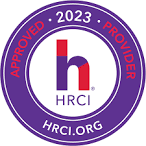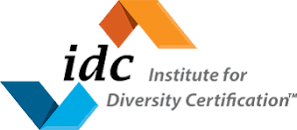Acquiring and retaining talent is the top priority of every employer, especially for a fast-growing business. One way to tackle the issue is to develop the talent you already have. Turning your managers into leaders can be extremely beneficial for your organization in many ways. It improves staff engagement, attractiveness as an employer and enhances your bottom line.
Human Resources is the driving force behind development. The rule is simple here; successful managers empower positive business outcomes. Even if your business doesn’t need leaders, it’s vital to implement efficient systems and processes in your company.
This read looks at how HR can impact leadership development and bring success to your business.
Why HR for leadership development?
Your HR department is distinctively positioned, and it can support the growth and development of various skills among your current employees, including managerial skills. This is because the HR department is involved with all departments without being engaged with their daily activities and tasks. As a result, the department remains in touch with all of them and has a better view of the whole person.
Moreover, HR officials are experienced, and they work with all types of managers. Hence they can better evaluate their skills, capabilities, and what they do. This is the main reason why business owners or executives look at HR for future leaders.
How HR Can Develop Future Leaders:
Leadership training and development
It’s not always easy to be a manager. Managers have a crucial role in any given workplace: They encourage their teams by being approachable themselves–the more comfortable leaders are taking charge, the better motivated everyone else will be.
According to a survey, around 88 percent of employees are highly motivated when their managers praise them. Due to this reason, it’s vital that HR looks closely and monitors how future leaders can be trained and developed into the best leaders.
The process starts with various training and development opportunities for managers and leaders. These programs encourage them to fill their skills gaps.
HR plays an active role in leadership development by appreciating leaders’ strong points and identifying where they need improvement. They also suggest courses or mentoring opportunities that help employees to become future leaders.
Developing leaders before the management level is essential because it ensures that HR has identified future representatives who will step into their roles.
These individuals should then go through an extensive training program so they can learn best practices and utilize all of their abilities early, even if there are people at higher levels than them already doing this work for now.
Appropriate Promotion systems
Organizations often promote employees who have advanced technical skills. The problem with this approach is that technical skills don’t ensure excellent leadership skills. HR departments should be aware of this approach as it affects staff morale and their efficiency.
When individuals are promoted into leadership roles, HR’s primary responsibility is to ensure they’re appropriately trained and supported to perform and handle their new assignments.
This means there should be an efficient system for promotion, and it should ensure that leaders are effectively onboard through various initiatives like mentoring, advanced training programs, and coaching.
Moreover, succession planning ensures that the right leaders are in place at all levels within an organization. This ensures long-term success and can help avoid short-term problems like turnover or leadership complications.
Employee-centric approach
HR should make sure that an employee-centric approach is adopted within an organization when it comes to building leadership. Managers and supervisors at all levels must follow a people-centric leadership model, and the HR department should support this.
The HR team is responsible for ensuring everyone in the company knows what effective leadership looks like. This can be done in multiple ways, including established documentation that spells out expected behaviors from leaders and a shared understanding of terms used throughout all areas of your business operations.
An employee-centric approach also includes forming the interpersonal skills of leaders and drafting practical strategies for hiring, retaining, and managing employees and teams.
Helping managers to adopt a team-based approach
Effective management is beyond performance reviews and frameworks. Mainly, it’s about motivating teams and encouraging them to give their best. Your management teams should keep employees satisfied through good leaders and leadership.
This will be only possible when you have an efficient promotion, hiring, and training system so that the right people play the right leadership roles.
Similarly, businesses should provide managers with appropriate tools to build their own teams and gauge their strengths and weaknesses.
The HR department can help leaders empower their teams by providing them with coaching, training, and mentoring facilities. This also allows managers and current leaders to identify potential leaders.
HR and higher management collaboration
When it’s about the success of a business or organization, the HR department must determine what leadership roles impact business strategy. By defining what roles are related to business strategy, you can understand and find the people you need to collaborate with and execute effective business strategies.
Remember that managers shouldn’t be left on their own when it comes to drafting and executing these initiatives. HR should monitor these strategies at all levels. Besides, all strategies along with their terms and plans should be documented by HR.
Additionally, HR should encourage employee buy-in and assist leaders in attaining positive outcomes. The HR department should work alongside the leaders to ensure business goals and expectations are met, and all defined processes are being followed.

Leads by example
HR departments should be a source of inspiration for leaders and other departments in the organization. They can serve as an example by representing what has been defined as management excellence.
Within a responsive and active HR department, all employees can see a live working model and example of great leadership.
HR Opportunity Is There For You:
HR Opportunity is a specialist training consultancy that offers leadership and team-building skills development. The company also provides other services such as organizational development, talent management (for human resources or employee relations), and HR Consultancy to help organizations create better work environments for their employees.
Have any questions regarding the topic “How HR can help develop better managers and leaders” feel free to comment below.
Also Read:https://hr-opportunity.com/ways-to-reach-success-through-dei-solutions/







1 thought on “How HR can help develop better managers and leaders?”
Pingback: Top Corporate Governance Trends For 2021 - 2022 - HR Opportunity- The HR Company